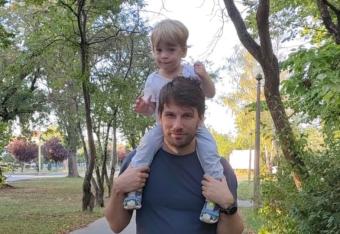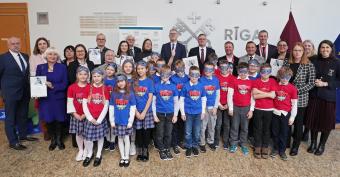
They want more, was the verdict of participants in Malaysia’s first-ever Pre-Hospital Care (PHC) Stroke Workshop held in Kuala Lumpur on Saturday 21 June. A milestone collaboration between the Angels Initiative and the College of Emergency Physicians Malaysia, the workshop brought together more than 70 representatives from over 50 organizations, including public and university hospitals, private ambulance services, NGOs, and the fire and rescue department. What this diverse mix of participants had in common, was a commitment to improve outcomes for stroke patients through faster and more effective pre-hospital care.
Every 30 minutes, a stroke patient who could have been saved, dies or is permanently disabled, because they were treated in a hospital unequipped to treat stroke. That is how critical it is for first responders to know how to identify stroke symptoms, act swiftly, provide transport to the nearest stroke-ready hospital, and prenotify the hospital that they are on their way.
In Kuala Lumpur, a carefully structured agenda delivered a workshop that was thoughtfully designed for maximum impact. The day began with three powerful presentations by neurologists and emergency physicians that laid a strong foundation for the rest of the program. These covered essential topics such as stroke recognition from a clinical perspective, key actions in the pre-hospital phase, and pre-hospital care best practices. Together, they provided participants with the critical knowledge and context needed to fully engage in the simulation-based training that followed.

Simulation-based training is essential for translating knowledge into action. On this occasion, two dedicated sessions were held to maximize hands-on learning:
The first featured a virtual stroke simulation using Body Interact, a digital patient simulator that is one of the learning resources provided by the Angels Initiative. Participants were able to assess and manage virtual stroke patients in the pre-hospital setting, with the goal to enhance clinical decision-making under time pressure. The Angels team in Malaysia, using Body Interact for pre-hospital training for the first time, had selected three cases, including one of stroke mimic, and two that exposed participants to stroke screening tools such as FAST-ED and the RACE scale.

The second was a hands-on group simulation, where participants worked through three clinical cases using role cards and detailed scenarios. They were divided in groups based on their region, the goal being to help participants identify stroke-ready and non-stroke-ready hospitals within their regions, and to enable them to make informed decisions on appropriate patient routing, which is a crucial step in optimizing pre-hospital stroke care. The simulation cases included one where a 10-year-old child called the emergency number on behalf of their mom who had had a stroke. This was to familiarize participants with the FAST Heroes campaign and prepare paramedics to handle this kind of situation.
Following the simulation sessions, the workshop shifted focus to celebrating achievements and raising public awareness. Excellence in emergency stroke care was recognized with an award ceremony honouring four organizations that had achieved EMS Angels Awards in Q1 2025. They included first-time award winners First Ambulance Services (Central Region), PHCS Hospital Umum Sarawak and St John Ambulance of Malaysia (State of Penang). PHC Hospital Tuanku Ja’afar & NS collected their fourth consecutive award.

The day closed with a community awareness session featuring the FAST Heroes 999 campaign, a project of the Angels Initiative. Participants were joined by mascot Timmy, whose presence brought energy and visibility to the importance of public education in stroke recognition, especially among children and families.
This workshop was more than just training. It was a catalyst for change as the knowledge shared, the skills practiced, and the partnerships formed will ripple across regions. By bringing together diverse emergency care providers under one roof, the Angels Team in Malaysia has taken a bold step toward building a more connected, capable, and stroke-ready Malaysia. They are incredibly proud of this milestone and even more excited for what lies ahead, as they view this as just the beginning of a nationwide movement to elevate pre-hospital stroke care.




